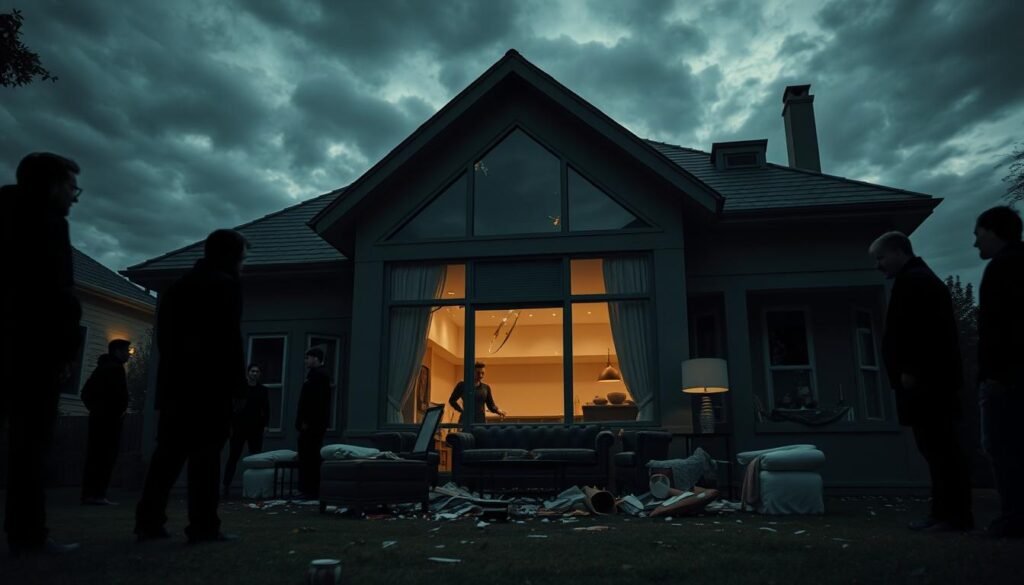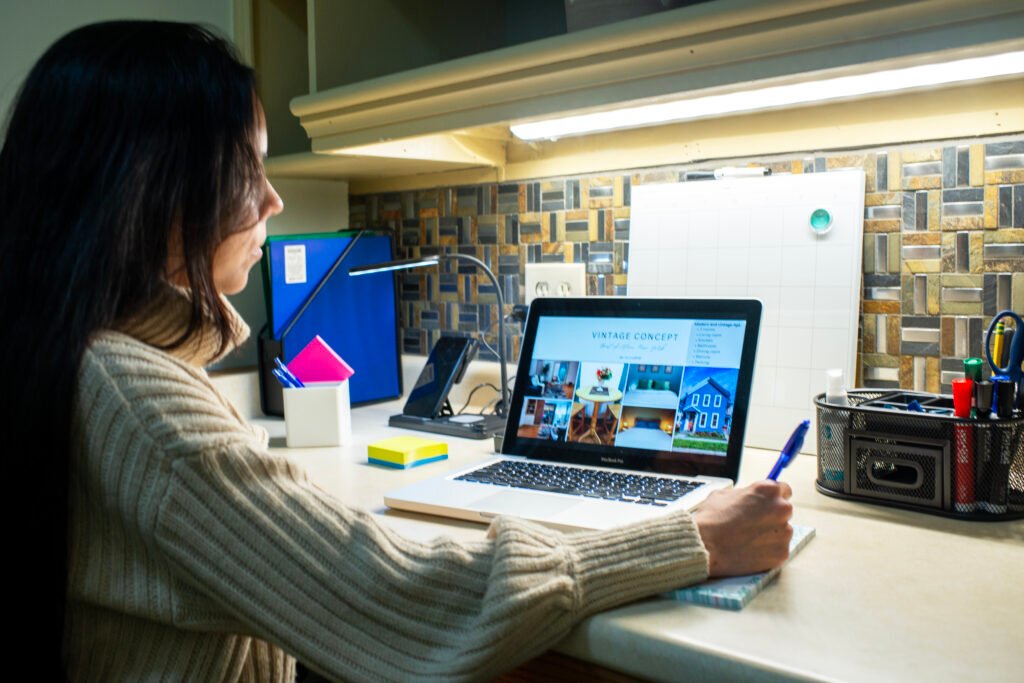The rise of vacation rental platforms like Airbnb has revolutionized the hospitality industry, offering travelers more flexibility and unique experiences. However, with this growth has come increased concerns over liability issues, particularly surrounding unauthorized parties and property damage. As Airbnb hosts and guests navigate this evolving landscape, it is crucial to understand the company’s liability policies, the legal implications of such incidents, and the best practices for mitigating risks.
At the heart of this discussion lies the delicate balance between the convenience and appeal of Airbnb rentals and the need to ensure the safety and security of both hosts and guests. This section will delve into the nuances of Airbnb’s liability policies, explore real-world case studies, and provide valuable insights for hosts and travelers to navigate these challenges effectively.
Key Takeaways
- Airbnb’s liability policies are crucial for understanding the responsibilities of hosts and guests in the event of unauthorized parties or property damage.
- Unauthorized guests can have serious legal implications, potentially leading to fines, evictions, and even criminal charges for both hosts and guests.
- Airbnb’s Host Guarantee and insurance programs provide some coverage for property damage, but hosts must carefully review the limitations and exclusions to ensure adequate protection.
- Hosts have a responsibility to set clear house rules, screen guests effectively, and utilize smart technology to maintain the security of their properties.
- In the event of unauthorized parties or property damage, hosts must document the situation, report it to Airbnb and local authorities, and explore legal recourse options.
Overview of Airbnb's Liability Policies
As an Airbnb host, it’s crucial to understand the platform’s liability policies that protect both you and your guests. Airbnb’s Terms of Service outline the responsibilities and expectations for all parties involved in a short-term rental transaction, including the Airbnb host protection and guest accountability measures.
Introduction to Airbnb's Terms of Service
The Terms of Service are a comprehensive agreement that govern the use of Airbnb’s platform. These terms cover a wide range of topics, from listing requirements and booking policies to short-term rental rules and dispute resolution procedures. Familiarizing yourself with these terms is essential for ensuring a smooth and successful hosting experience.
Importance of Liability Clauses
Buried within Airbnb’s Terms of Service are crucial liability clauses that outline the responsibilities and liabilities of both hosts and guests. These clauses address important issues such as guest accountability for damages, the Airbnb host protection against unauthorized parties, and the company’s role in mediating disputes. Understanding these clauses can help you navigate potential liability risks and protect your interests as a host.
Understanding Guest Responsibilities
- Airbnb guests are expected to respect the property, follow house rules, and refrain from any unauthorized or disruptive behavior.
- Guests are financially responsible for any damages they cause to the rental property or its contents during their stay.
- Hosts have the right to request a security deposit or hold guests accountable for any verified damages through Airbnb’s dispute resolution process.
By familiarizing yourself with Airbnb’s liability policies and guest responsibilities, you can better protect your property, minimize risks, and ensure a positive experience for both you and your guests.
Legal Implications of Unauthorized Parties
Airbnb rentals are intended for lawful, peaceful use by authorized guests. However, unauthorized parties can pose significant legal risks for both hosts and guests. Understanding the definitions, consequences, and real-world case studies surrounding these issues is crucial for maintaining a safe and responsible Airbnb community.
Defining Unauthorized Guests
Unauthorized guests refer to individuals who are not listed on the Airbnb rental agreement or who exceed the maximum occupancy limit set by the host. These guests may be attending a party or gathering without the host’s knowledge or consent, violating the terms of the rental agreement and potentially local party house regulations and neighborhood nuisance prevention laws.
Consequences for Hosts and Guests
The presence of unauthorized guests can lead to a range of legal and financial consequences for both hosts and guests. Hosts may face penalties, fines, or even lawsuits for property damage, noise complaints, or violations of Airbnb community policies. Guests, on the other hand, may be subject to criminal charges, civil liability, or even eviction from the rental property.
Case Studies on Legal Outcomes
Real-world case studies illustrate the serious legal implications of unauthorized parties in Airbnb rentals. In one instance, a host was sued by a neighboring property owner for the noise and disruption caused by an unsanctioned party, resulting in a substantial financial settlement. In another case, a group of guests were arrested and charged with trespassing and public nuisance after a neighbors reported an unauthorized gathering.
These examples underscore the importance of hosts and guests adhering to the terms of the Airbnb rental agreement and local regulations to avoid potential legal consequences and maintain a positive relationship with the surrounding community.
Types of Property Damage Covered by Airbnb
When it comes to property damage insurance and Airbnb host protection, understanding the types of damages covered is crucial for vacation rental safety. Airbnb’s policies aim to provide a level of coverage for hosts, but it’s essential to know the limitations and exclusions.
Breakdown of Damage Types
Airbnb’s coverage typically includes damages caused by guests, such as:
- Accidental spills or stains on furniture or carpets
- Broken windows, doors, or other structural elements
- Theft of property or equipment
- Excessive cleaning required beyond normal wear and tear
Examples of Damages in Real Situations
Real-life examples of damages covered by Airbnb’s policies include a guest who accidentally knocked over a vase, causing it to shatter, or a group of guests who left the property in disarray, requiring extensive cleaning and minor repairs. In these cases, Airbnb’s host protection insurance helped offset the costs for the affected hosts.
Limitations of Coverage
It’s important to note that Airbnb’s coverage is not all-encompassing. Some exclusions include:
- Damages caused by unauthorized guests or unauthorized parties
- Wear and tear or pre-existing conditions in the property
- Damages resulting from a host’s negligence or failure to maintain the property
- Damages exceeding the coverage limits set by Airbnb’s policies
Understanding these limitations can help hosts take proactive steps to mitigate risks and ensure they have adequate property damage insurance coverage.

Airbnb's Host Guarantee and Insurance
As an Airbnb host, it’s crucial to understand the protection offered by the platform’s comprehensive insurance and guarantee policies. Airbnb’s Host Guarantee provides a safety net for hosts, covering property damage and loss caused by guests up to a certain limit.
Overview of Airbnb's Host Guarantee
The Host Guarantee is a free program that covers eligible property damage and theft by guests, with a maximum payout of $1 million per incident. This coverage applies to the host’s personal and shared spaces, as well as any furniture, decor, or other items within the rental property.
Coverage Limits and Exclusions
While the Host Guarantee offers substantial protection, it’s important to be aware of its limitations. The program does not cover cash, securities, collectibles, rare artwork, jewelry, pets, or personal liability for hosts. Additionally, there are strict time frames and documentation requirements for filing a claim.
Navigating Claims for Property Damage
In the event of guest-related property damage, hosts must follow Airbnb’s claim process to receive compensation. This typically involves documenting the incident, submitting photographic evidence, and providing detailed cost estimates for repairs or replacement. Airbnb’s team will then review the claim and determine the appropriate course of action.
| Airbnb Host Guarantee | Coverage | Exclusions |
|---|---|---|
| Maximum Payout | $1 million per incident | Cash, securities, collectibles, rare artwork, jewelry, pets, and personal liability |
| Covered Damages | Property damage and theft by guests | Time frames and documentation requirements apply |
By understanding the details of Airbnb’s host protection and property damage insurance offerings, hosts can better safeguard their short-term rental investments and navigate the claims process with confidence.

Responsibilities of Guests in Airbnb Rentals
As Airbnb hosts strive to provide a welcoming and responsible hosting experience, it’s crucial for guests to understand their role in maintaining the integrity of the Airbnb community. From adhering to conduct expectations to properly reporting any damages, guests play a vital part in upholding the trust and transparency that underpins the Airbnb ecosystem.
Guest Conduct Expectations
Airbnb’s community policies outline clear guidelines for guest behavior, emphasizing the importance of responsible hosting and guest accountability. Guests are expected to respect the property, refrain from throwing unauthorized parties, and be considerate of their neighbors. Failure to meet these expectations can result in consequences, such as being banned from the platform or facing legal action.
Reported Damages by Guests
When unfortunate incidents occur, such as property damage, it’s essential that guests take responsibility and promptly report the issue to their host. This allows for open communication, appropriate remediation, and the potential filing of Airbnb damage claims. Guests who attempt to conceal or minimize damages may face serious repercussions, undermining the Airbnb community policies that aim to foster trust and transparency.
Understanding Terms of the Rental Agreement
Before booking an Airbnb, guests should carefully review the rental agreement to familiarize themselves with the terms and conditions. This includes understanding the host’s policies, deposit requirements, and the process for reporting any issues or concerns. By adhering to the agreed-upon terms, guests can ensure a seamless and enjoyable Airbnb experience for all parties involved.
| Key Guest Responsibilities | Consequences of Non-Compliance |
|---|---|
| Respect property and neighbors | Potential banning from Airbnb platform |
| Avoid unauthorized parties | Legal action by host or authorities |
| Promptly report any damages | Liability for repair costs and claims |
| Adhere to rental agreement terms | Forfeiture of security deposit or other penalties |
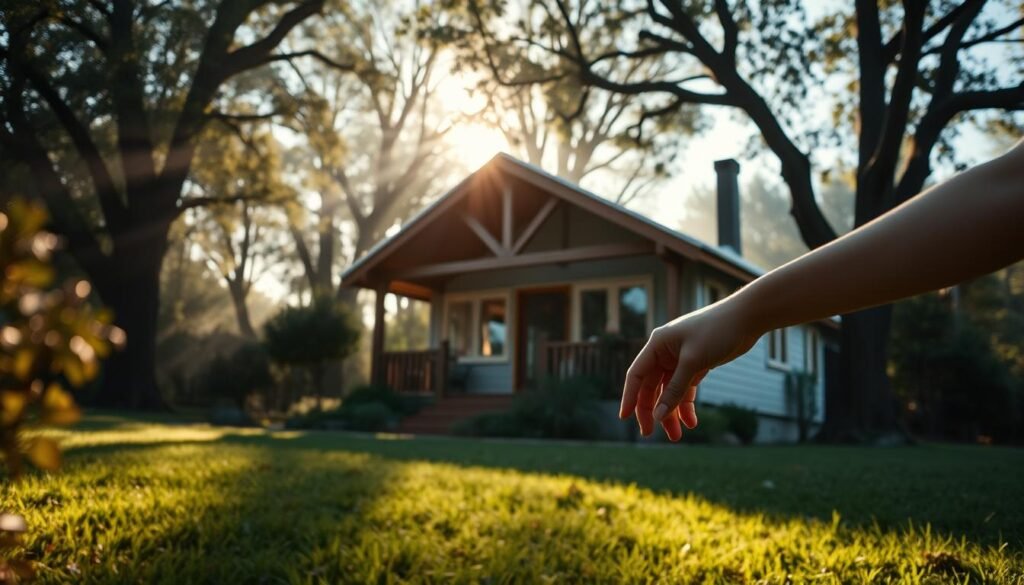
“Responsible hosting and guest accountability are essential for maintaining the integrity of the Airbnb community.”
Airbnb's Damage Policy and Claim Process
As an Airbnb host, understanding the company’s damage policy and claim process is crucial for protecting your property and securing compensation in case of any incidents. Airbnb provides a robust Host Guarantee that covers property damage, but navigating the claim process can be complex. Let’s dive into the key steps and requirements to ensure a smooth resolution.
Steps to File a Damage Claim
- Document the damage: Thoroughly document the extent of the property damage with clear photos and videos, along with a detailed description of the incident.
- Report the issue to Airbnb: Promptly report the damage to Airbnb through the online resolution center, providing all the necessary documentation.
- Obtain repair estimates: Gather written repair estimates from licensed contractors or service providers to support your claim.
- Submit the claim: Complete the claim form and upload all the required documents, including the repair estimates and photographic evidence.
Documentation Required for Claims
Airbnb’s damage policy requires comprehensive documentation to support your claim. This includes:
- Detailed description of the damage and the incident that caused it
- Clear and high-quality photos or videos showcasing the extent of the damage
- Written repair estimates from licensed contractors or service providers
- Proof of ownership or possession of the damaged items
- Any other relevant documentation, such as police reports or witness statements
Timeline for Claim Resolution
Once you’ve submitted your claim, Airbnb will review the documentation and assess the validity of the request. The typical timeline for claim resolution is as follows:
| Step | Timeline |
|---|---|
| Initial review of the claim | Within 3-5 business days |
| Request for additional information, if needed | Within 7-10 business days |
| Decision on the claim | Within 14-21 business days |
| Payment processing (if approved) | Within 7-10 business days |
By understanding Airbnb’s damage policy and claim process, you can better protect your property and ensure a timely resolution in the event of any incidents. Proper documentation and a proactive approach can help you navigate the claims process with confidence and minimize the impact on your property damage insurance and Airbnb host protection.
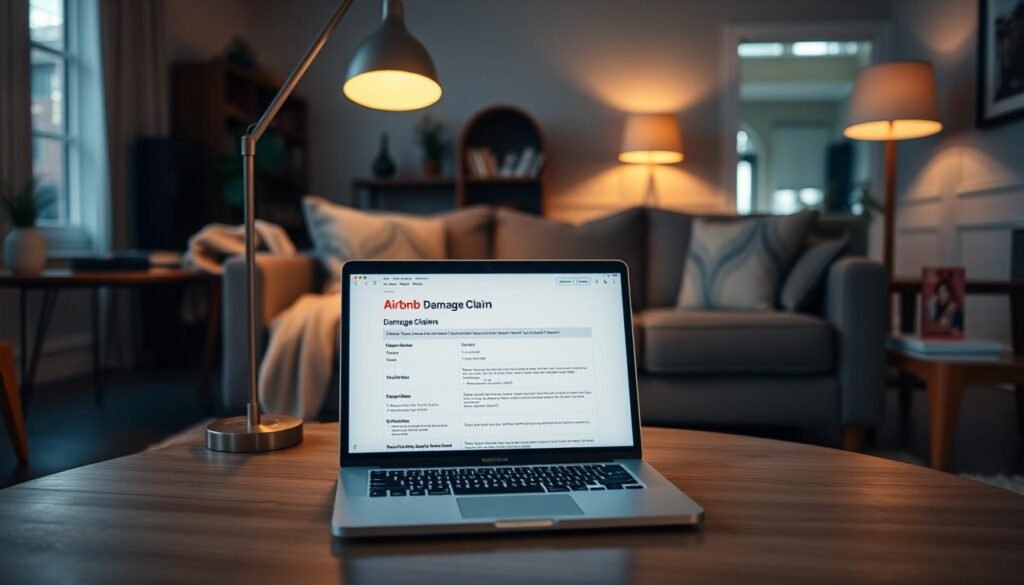
Implications of Unauthorized Parties on Insurance
As an Airbnb host, it’s crucial to understand the potential implications of unauthorized parties on your insurance coverage. Uninvited guests can significantly impact your protection, leaving you vulnerable to financial and legal liabilities.
How Unauthorized Guests Impact Coverage
Most standard homeowner’s or renter’s insurance policies exclude coverage for damages or incidents that occur during unauthorized parties or gatherings. This means that if your property is damaged or someone is injured during an unapproved event, your insurance provider may deny your claim, leaving you responsible for the costs.
Risk Assessments for Hosts
- Carefully review your insurance policy to understand the exclusions and limitations related to unauthorized parties and events.
- Conduct regular risk assessments to identify potential vulnerabilities in your property and rental operations.
- Consider implementing additional security measures, such as smart home technology or on-site staff, to monitor and control access to your vacation rental.
Solutions for Mitigating Risk
To protect yourself and your Airbnb property, it’s essential to take proactive steps to mitigate the risks associated with unauthorized parties. This may include:
- Establishing clear house rules and party policies that are prominently displayed and communicated to all guests.
- Requiring a security deposit or damage waiver to incentivize responsible behavior and cover potential costs.
- Investing in comprehensive vacation rental insurance that specifically covers damages and liability related to unauthorized gatherings.
By understanding the implications of unauthorized parties on your insurance coverage and taking appropriate action, you can safeguard your vacation rental business and protect your assets.
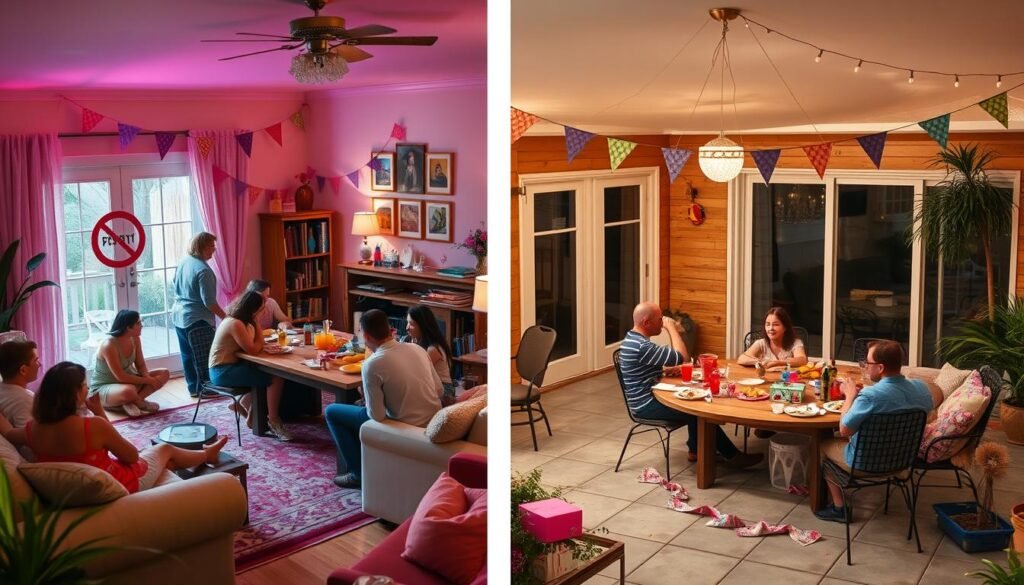
| Risk Factor | Impact on Insurance | Mitigation Strategies |
|---|---|---|
| Unauthorized Parties | Exclusion of coverage for damages and liability | Establish clear house rules, require security deposits, and invest in comprehensive vacation rental insurance |
| Uncontrolled Guest Access | Increased risk of property damage and personal injury claims | Implement smart home technology, on-site staff, and guest screening processes |
| Lack of Property Monitoring | Difficulty documenting incidents and making successful claims | Regularly inspect the property and maintain detailed records of any issues or damages |
The Role of Local Laws in Property Damage
When it comes to property damage in Airbnb rentals, the local laws and regulations play a crucial role. Understanding the state-level regulations and municipal ordinances that govern short-term rentals is essential for both hosts and guests to ensure a successful and lawful experience.
Understanding State Regulations
States across the United States have implemented various laws and guidelines to address the growth of the short-term rental market, including regulations on property damage and unauthorized. Hosts must familiarize themselves with their state’s specific requirements to ensure they are in compliance and minimize potential liability.
Local Ordinances Affecting Rentals
In addition to state-level regulations, many cities and municipalities have introduced their own ordinances that govern the operation of short-term rentals within their jurisdictions. These local laws may address issues such as neighborhood nuisance prevention, occupancy limits, and registration or licensing requirements for hosts.
Legal Recourse for Landlords
If a host experiences property damage or unauthorized parties in their Airbnb rental, they may have legal recourse depending on the local laws and their specific rental agreement. Landlords may be able to pursue claims through small claims court, mediation, or by engaging legal counsel to seek compensation for the damages incurred.
| State Regulation Example | Local Ordinance Example | Legal Recourse Option |
|---|---|---|
| California’s short-term rental laws require hosts to obtain a business license and collect applicable taxes. | New York City’s regulations limit short-term rentals to 30 days or less and prohibit certain types of properties from being listed. | A host in Texas may be able to file a small claims court case against a guest who caused significant property damage. |
By understanding the local legal landscape, Airbnb hosts can navigate the challenges of property damage and unauthorized parties more effectively, ensuring compliance with relevant laws and protecting their investments.
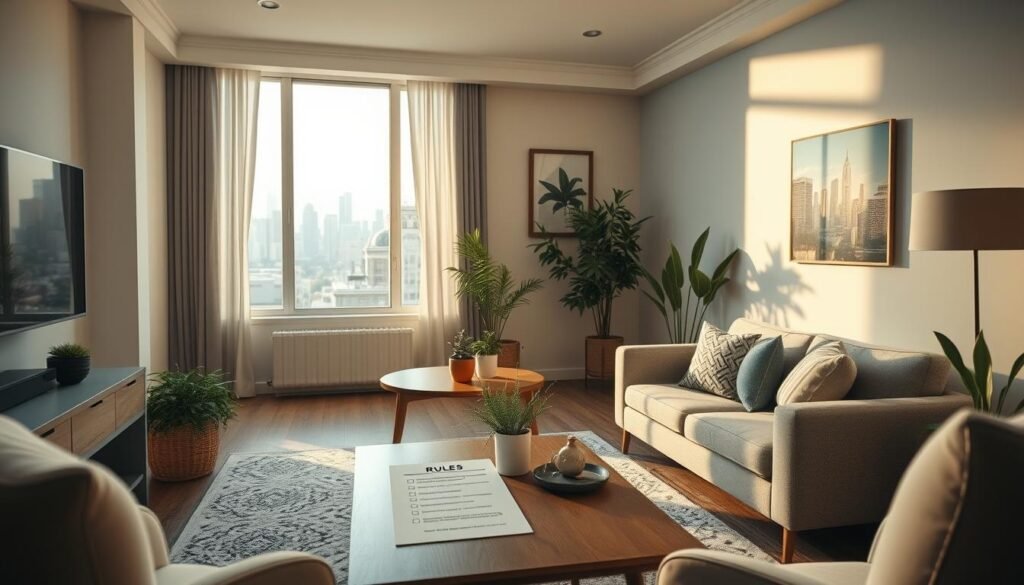
Prevention Strategies for Hosts
As an Airbnb host, ensuring the safety and security of your vacation rental is paramount. Responsible hosting involves proactive measures to prevent unauthorized parties and property damage. By implementing effective prevention strategies, hosts can minimize liability and protect their investments.
Screening Guests Effectively
Thorough guest screening is the first line of defense against potential issues. Airbnb hosts should carefully review guest profiles, ratings, and reviews to assess their trustworthiness and likelihood of responsible behavior. Implementing a comprehensive guest screening process can help identify and avoid problematic individuals.
Setting Clear House Rules
Establishing clear and concise house rules is crucial for managing guest expectations and maintaining control over the vacation rental. Hosts should outline expectations regarding noise levels, guest capacity, smoking policies, and any other restrictions or guidelines. Prominently displaying these rules and obtaining guest acknowledgment can help ensure compliance and minimize the risk of unauthorized parties.
Utilizing Smart Technology for Security
The integration of smart home technology can significantly enhance vacation rental security. Hosts may consider implementing features such as security cameras, smart locks, and noise monitoring systems to keep a watchful eye on the property and guest activities. These technological solutions can provide valuable data and evidence in the event of an incident, aiding in the resolution of any disputes or claims.
By implementing a combination of these prevention strategies, Airbnb hosts can promote responsible hosting, ensure vacation rental safety, and strengthen Airbnb host protection. A proactive approach to liability management can help hosts maintain a positive reputation, protect their investments, and deliver exceptional experiences for their guests.

| Prevention Strategy | Benefits |
|---|---|
| Effective Guest Screening | Identify and avoid problematic individuals, promote responsible hosting |
| Clear House Rules | Set expectations, ensure guest compliance, and minimize risk of unauthorized parties |
| Smart Home Technology | Enhance security, monitor property, and provide evidence in case of disputes |
Actions to Take if Unauthorized Guests Are Discovered
As a responsible Airbnb host, it’s crucial to be prepared for unexpected situations, such as the discovery of unauthorized guests in your rental property. In this section, we’ll explore the immediate steps you should take, the importance of proper documentation, and the reporting process to both Airbnb and local authorities.
Immediate Steps for Hosts
If you suspect or discover that unauthorized guests have occupied your Airbnb rental, your first course of action should be to calmly and politely confront the situation. Approach the guests and remind them of the party house regulations and guest accountability outlined in the Airbnb community policies. Avoid escalating the situation, but firmly insist that the unauthorized guests depart immediately.
Documenting the Situation
- Thoroughly document the incident, including the date, time, and details of the unauthorized guests’ presence.
- Take photographs or video recordings as evidence, ensuring to capture any damage or disturbances caused by the unauthorized guests.
- Obtain statements from any other guests or neighbors who may have witnessed the situation.
Reporting to Airbnb and Local Authorities
Once you have thoroughly documented the incident, it’s time to report the unauthorized guests to Airbnb. Follow the platform’s established procedures for reporting policy violations, providing the collected evidence and details of the situation. Additionally, consider contacting local law enforcement authorities, as the presence of unauthorized guests may violate local party house regulations.
By taking these proactive steps, you can effectively address the unauthorized guest situation, protect your property, and maintain the integrity of the Airbnb community.
Legal Recourse for Hosts Facing Damage
As an Airbnb host, dealing with property damage can be a frustrating and complex situation. Fortunately, there are various legal options available to seek compensation and resolution. In this section, we’ll explore the different avenues hosts can pursue when faced with unauthorized parties and resulting damage to their rental property.
Small Claims Court Options
For hosts seeking to recover relatively minor damages, small claims court can be a viable option. These courts typically handle cases involving lower monetary amounts, making them a more accessible and cost-effective solution compared to traditional legal proceedings. By filing a small claims case, hosts can potentially recoup the costs of repairs or replacement items without the need for extensive legal representation.
Seeking Mediation or Arbitration
In some instances, hosts may find mediation or arbitration to be a more suitable approach for resolving property damage disputes. These alternative dispute resolution methods can often provide a faster and less adversarial path to finding a mutually agreeable solution. Mediation involves a neutral third party facilitating negotiations between the host and the guest, while arbitration involves a binding decision made by an impartial arbitrator.
Engaging Legal Counsel
For more complex or high-stakes cases, it may be necessary for hosts to seek the guidance of a legal professional. An attorney can help navigate the intricacies of property damage insurance, Airbnb host protection policies, and short-term rental rules, ensuring that the host’s rights and interests are fully represented. They can also assist in pursuing legal action, such as filing a lawsuit or negotiating a settlement, if other avenues prove unsuccessful.
Ultimately, the choice of legal recourse will depend on the specific circumstances of the property damage incident and the host’s desired outcome. By understanding the options available, hosts can make informed decisions and take the necessary steps to protect their investment and seek appropriate compensation.
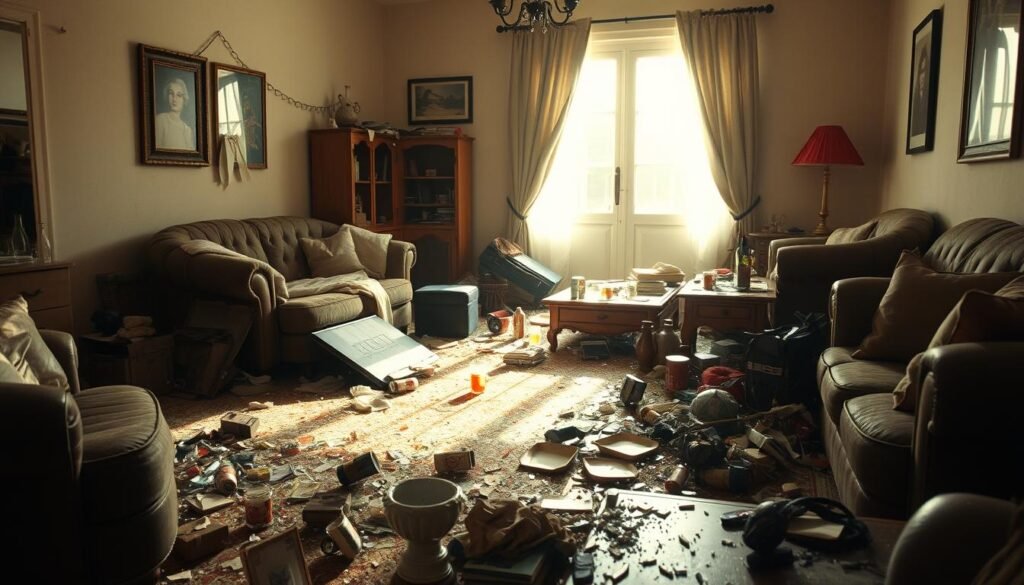
Airbnb's Response to Unauthorized Parties
As the popularity of short-term rentals continues to grow, Airbnb has faced increasing challenges in addressing the issue of unauthorized parties and the ensuing property damage. In response, the platform has implemented various procedures and policies to mitigate these concerns and protect both hosts and guests.
Procedures for Reporting Issues
Airbnb provides clear channels for hosts to report incidents of unauthorized parties or other disruptive guest behavior. Hosts can submit detailed reports through the platform’s online system, outlining the specific details of the incident and any associated damages. Airbnb’s community support team then reviews these reports and initiates the appropriate investigative and resolution processes.
Resolution Offerings from Airbnb
- Airbnb offers a range of solutions to address unauthorized parties, including the ability to issue warnings, temporarily suspend guest accounts, or, in more severe cases, permanently ban guests from the platform.
- The company also provides financial assistance to hosts through its Host Guarantee program, which covers eligible property damage up to $1 million per incident, subject to certain terms and conditions.
Recent Changes to Airbnb Policies
In response to the growing concerns around unauthorized parties, Airbnb has implemented several policy changes in recent years, including:
- Stricter restrictions on the maximum number of guests allowed in a rental property, with a focus on preventing overcrowding and excessive gatherings.
- Enhanced screening and verification processes for guests, aimed at identifying potential “party house” risks before bookings are confirmed.
- Increased collaboration with local authorities and law enforcement to address illegal or disruptive activities, ensuring a coordinated approach to upholding party house regulations and Airbnb community policies.
These measures, along with a renewed emphasis on guest accountability, demonstrate Airbnb’s commitment to maintaining the integrity of its platform and protecting the interests of both hosts and responsible guests.
Analyzing Trends in Liability Cases
In the ever-evolving landscape of Airbnb rentals, analyzing trends in liability cases has become crucial for understanding the legal landscape and ensuring the safety of both hosts and guests. Recent case examples shed light on the common issues faced by hosts, as the short-term rental industry continues to navigate the complexities of property damage liability.
Recent Case Examples
One high-profile case involved an Airbnb host in California who faced significant liability after a guest hosted an unauthorized party that resulted in extensive property damage. The host was held responsible for failing to properly vet the guests and enforce their rental agreement. Another case in New York saw an Airbnb host sued for Airbnb’s liability after a guest suffered injuries due to unsafe conditions in the rental property.
Common Issues Faced by Hosts
- Unauthorized parties and events that lead to property damage
- Guests causing injuries due to unsafe conditions in the rental
- Disputes over the enforcement of short-term rental rules and guest responsibilities
- Challenges in effectively screening and vetting guests to mitigate vacation rental safety risks
Evolving Legal Landscape
As the Airbnb’s liability and short-term rental industry continues to evolve, the legal landscape surrounding these issues is also in flux. Many jurisdictions are implementing new regulations and ordinances to address the growing concerns around vacation rental safety and property damage liability. Hosts and Airbnb must stay informed and adapt their practices to ensure compliance and minimize their exposure to potential risks.
| Case Example | Location | Key Issue | Outcome |
|---|---|---|---|
| Unauthorized Party Leads to Property Damage | California | Failure to vet guests and enforce rental agreement | Host held liable for extensive property damage |
| Guest Injury Due to Unsafe Conditions | New York | Unsafe conditions in rental property | Host sued for Airbnb’s liability |

“As the short-term rental industry continues to evolve, the legal landscape surrounding these issues is also in flux.”
Best Practices for Hosts to Minimize Liability
As an Airbnb host, safeguarding your vacation rental property and minimizing liability risks should be a top priority. By implementing a few best practices, you can protect your investment and ensure a positive experience for your guests. Let’s explore some key strategies to help you become a responsible host and maintain Airbnb host protection.
Implementing Strong Policies
Establishing clear and comprehensive policies is essential for setting the tone and expectations with your guests. Develop a detailed rental agreement that outlines the rules, regulations, and responsibilities for both you and your guests. This should include guidelines on the maximum occupancy, permitted activities, and any restrictions on noise, parties, or damages. Ensure that these policies are prominently displayed and easily accessible to your guests throughout their stay.
Engaging with Guests Pre-Arrival
Effective communication with your guests before their arrival can go a long way in preventing issues and promoting responsible hosting. Reach out to your guests in advance to confirm their understanding of your rental policies and set clear expectations. Encourage them to review the rules and raise any concerns or special requirements they may have. This proactive approach can help you identify potential problems and address them before the guests even set foot in your property.
Importance of Regular Property Inspections
Maintaining the condition of your vacation rental through regular inspections is crucial for ensuring vacation rental safety and minimizing liability. Conduct thorough inspections before and after each guest stay, carefully documenting the property’s condition. This will help you identify and address any damages or issues promptly, allowing you to take appropriate action and potentially file claims with Airbnb’s host protection program if necessary.
By implementing these best practices, you can effectively minimize the risks associated with unauthorized parties and property damage, ensuring a safe and enjoyable experience for both you and your guests. Remember, responsible hosting is the key to a successful and liability-free Airbnb experience.

Responsibilities of Airbnb in Property Damage Cases
When it comes to Airbnb’s liability for property damage, the platform plays a critical role in mediating disputes and ensuring transparency in the claim process. Airbnb’s partnerships with insurance providers also serve to safeguard both hosts and guests from potential property damage insurance issues.
Airbnb's Role in Mediating Disputes
As the intermediary between hosts and guests, Airbnb takes an active approach in resolving disputes related to short-term rental rules and property damage. The company’s customer service team works to investigate claims, gather evidence, and facilitate communication between the involved parties. This mediation process aims to find equitable solutions that address the concerns of both hosts and guests.
Transparency in Claim Processes
Airbnb strives to maintain transparency in its claim processes for property damage. The platform provides clear guidelines on the documentation and information required to substantiate a claim, ensuring a streamlined and fair evaluation. Hosts and guests can track the status of their claims through Airbnb’s online tools, fostering confidence in the system.
Partnerships with Insurance Providers
To further protect its community, Airbnb has established partnerships with various insurance providers. These collaborations offer property damage insurance solutions tailored to the needs of short-term rentals, covering a range of potential incidents. By making these insurance options available, Airbnb aims to mitigate risks and provide peace of mind for both hosts and guests.
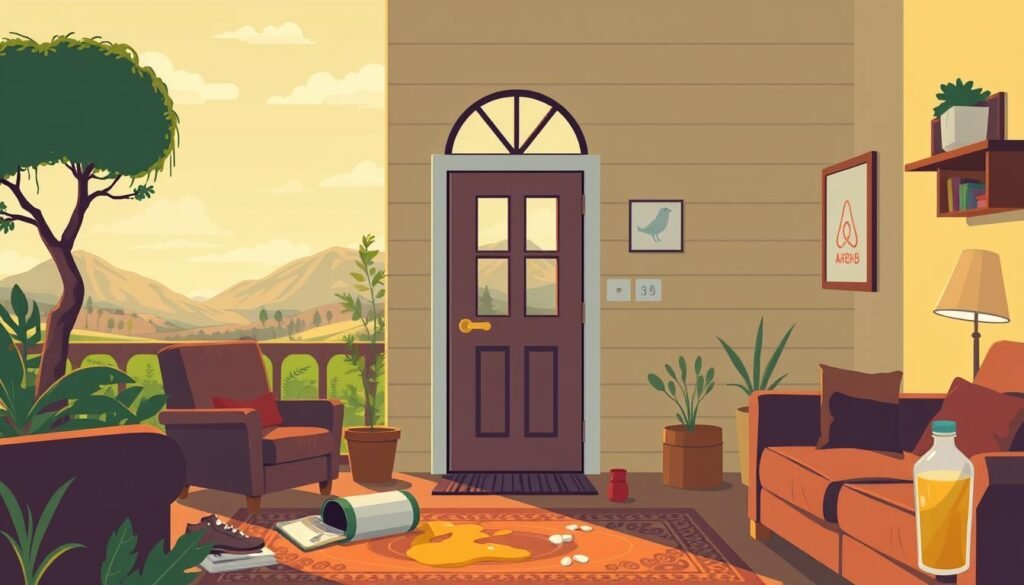
Airbnb’s commitment to addressing Airbnb’s liability and property damage cases demonstrates its efforts to foster a safer and more secure environment for its community. Through mediation, transparency, and strategic insurance partnerships, the platform continues to evolve its approach to protecting hosts and guests from the potential consequences of property damage.
Conclusion: Balancing Liability and Hosting Success
As we’ve explored the complex landscape of Airbnb’s liability policies, it’s clear that striking a balance between mitigating risks and maintaining a successful hosting experience is crucial. Hosts must be vigilant in understanding and adhering to Airbnb’s terms of service, while also proactively implementing safety measures to protect their properties and guests.
Summary of Key Takeaways
Throughout this article, we’ve highlighted the importance of understanding unauthorized parties, property damage coverage, the claim process, and legal implications. Hosts who stay informed and adopt best practices, such as effective guest screening and smart home security, are better positioned to avoid liability issues and enjoy the benefits of hosting on the Airbnb platform.
Future Implications for Hosts and Airbnb
As the vacation rental industry continues to evolve, the relationship between hosts, guests, and platforms like Airbnb will likely become even more nuanced. Hosts must stay informed about changing regulations and policies, while Airbnb may need to enhance its support and transparency to ensure a safer, more secure hosting environment. Ongoing collaboration and open communication between all stakeholders will be crucial in navigating the future of responsible hosting and mitigating liability concerns.
Final Thoughts on Liability Management
Ultimately, successful hosting on Airbnb requires a comprehensive approach to liability management. By understanding the risks, proactively implementing preventive measures, and remaining vigilant in monitoring their properties, hosts can create a positive, secure experience for their guests while minimizing their exposure to legal and financial liabilities. With the right strategies in place, hosts can strike a balance between liability protection and the rewards of hosting on the Airbnb platform.
FAQ
What is Airbnb’s liability for unauthorized parties and property damage?
Airbnb’s liability for unauthorized parties and property damage is outlined in their Terms of Service and liability clauses. Hosts and guests have specific responsibilities to ensure compliance and mitigate risks.
How does Airbnb define unauthorized guests?
Unauthorized guests are individuals who have not been approved or registered by the host prior to their arrival at the rental property. This can have significant legal and financial consequences for both the host and the unauthorized guests.
What types of property damage are covered by Airbnb’s policies?
Airbnb’s policies cover a range of property damage types, including physical damage, theft, and excessive cleaning requirements. However, there are also limitations to their coverage that hosts should understand.
What is Airbnb’s Host Guarantee and how does it protect hosts?
Airbnb’s Host Guarantee provides protection for hosts against property damage caused by guests, up to a certain coverage limit. Hosts must navigate the claims process and provide documentation to receive compensation.
What are the responsibilities of guests in Airbnb rentals?
Guests are expected to abide by the host’s house rules, report any damages, and understand the terms of the rental agreement. Failure to do so can result in financial liability and potential legal consequences.
How does Airbnb’s damage policy and claim process work?
Airbnb has a defined process for filing damage claims, which requires specific documentation and a timeline for resolution. Hosts must follow the proper steps to initiate and navigate the claim process effectively.
How can unauthorized parties impact a host’s insurance coverage?
Unauthorized parties can significantly affect a host’s insurance coverage, as they may be considered a violation of the rental agreement or policy terms. Hosts must assess risks and implement strategies to mitigate the potential impact of unauthorized gatherings.
What is the role of local laws in property damage cases involving Airbnb rentals?
Local laws and regulations can significantly impact property damage cases in Airbnb rentals. Hosts must understand state and municipal rules, as well as potential legal recourse options available to them.
What prevention strategies can hosts implement to minimize the risk of unauthorized parties and property damage?
Effective prevention strategies for hosts include thorough guest screening, setting clear house rules, and utilizing smart technology to enhance rental property security.
What actions should hosts take if they discover unauthorized guests in their Airbnb rental?
If unauthorized guests are discovered, hosts should take immediate steps to document the situation, notify Airbnb, and, if necessary, contact local authorities to address the issue.
What legal recourse options are available for hosts facing property damage?
Hosts facing property damage have several legal recourse options, such as pursuing small claims court, mediation, or arbitration. In some cases, engaging legal counsel may be necessary to resolve disputes or seek compensation.
How has Airbnb responded to the issue of unauthorized parties?
Airbnb has implemented procedures for reporting issues, offered resolution options, and made recent policy changes to address the problem of unauthorized gatherings and their associated risks.
What are the latest trends and evolving legal landscape surrounding Airbnb liability cases?
Recent case examples, common issues faced by hosts, and the evolving legal landscape surrounding short-term rentals and property damage liability indicate the need for hosts to stay informed and proactive in managing risks.
What are the best practices for hosts to minimize liability risks on Airbnb?
Best practices for hosts include implementing strong policies, engaging with guests pre-arrival, and conducting regular property inspections to maintain a safe and compliant rental environment.
What are Airbnb’s responsibilities in property damage cases?
Airbnb plays a role in mediating disputes, providing transparency in the claims process, and partnering with insurance providers to offer protection for hosts and guests.

